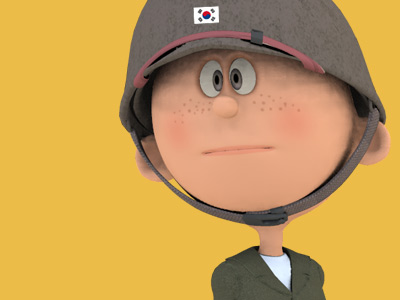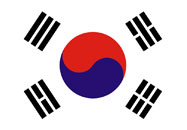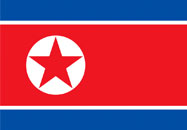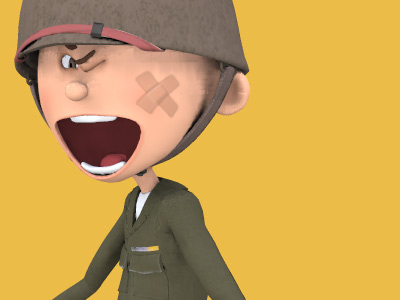Korean War 한국전쟁 (1950-1953)
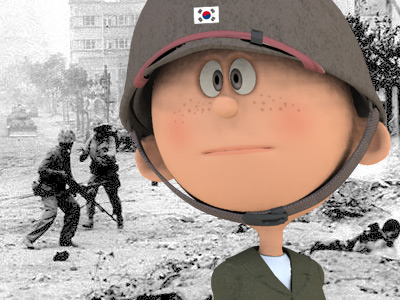
Background of Korean War (1950-1953)
Imperial Japanese rule (1910–1945)
Japan destroyed the influence of China over Korea in the First Sino-Japanese War (1894–95), ushering in the short-lived Korean Empire. A decade later, after defeating Imperial Russia Russian Empire was an empire and the final period of the Russian monarchy from 1721 to 1917, ruling across large parts of Eurasia. The rise of the Russian Empire coincided with the decline of neighbouring rival powers: the Swedish Empire, the Polish–Lithuanian Commonwealth, Qajar Iran, the Ottoman Empire, and Qing China. Russia remains the third-largest empire in history, surpassed only by the British Empire and the Mongol Empire. in the Russo-Japanese War (1904–05), Japan made Korea its protectorate with the Eulsa Treaty in 1905, then annexed it with the Japan–Korea Annexation Treaty in 1910.
Russian Empire was an empire and the final period of the Russian monarchy from 1721 to 1917, ruling across large parts of Eurasia. The rise of the Russian Empire coincided with the decline of neighbouring rival powers: the Swedish Empire, the Polish–Lithuanian Commonwealth, Qajar Iran, the Ottoman Empire, and Qing China. Russia remains the third-largest empire in history, surpassed only by the British Empire and the Mongol Empire. in the Russo-Japanese War (1904–05), Japan made Korea its protectorate with the Eulsa Treaty in 1905, then annexed it with the Japan–Korea Annexation Treaty in 1910.
Many Korean nationalists fled the country. A Provisional Government of the Republic of Korea was founded in 1919 in Nationalist China. It failed to achieve international recognition, failed to unite nationalist groups, and had a fractious relationship with its American-based founding President, Syngman Rhee. From 1919 to 1925 and beyond, Korean communists led internal and external warfare against the Japanese.
Korea was considered to be part of the Empire of Japan The Empire of Japan, also known as the Japanese Empire or Imperial Japan, was a historical nation-state and great power that existed from the Meiji Restoration in 1868 until the enactment of the post-World War II 1947 constitution and subsequent formation of modern Japan. Economic and political turmoil in the 1920s led to the rise of militarism, nationalism and totalitarianism eventually culminating in Japan's membership in the Axis alliance. as an industrialized colony along with Taiwan, and both were part of the Greater East Asia Co-Prosperity Sphere. In 1937, the colonial Governor-General, General Jirō Minami, commanded the attempted cultural assimilation of Korea's 23.5 million people by banning the use and study of Korean language, literature, and culture, to be replaced with that of mandatory use and study of their Japanese counterparts. Starting in 1939, the populace was required to use Japanese names under the Sōshi-kaimei policy. Conscription of Koreans for labor in war industries began in 1939, with as many as 2 million Koreans conscripted into either the Japanese Army or into the Japanese labor force.
The Empire of Japan, also known as the Japanese Empire or Imperial Japan, was a historical nation-state and great power that existed from the Meiji Restoration in 1868 until the enactment of the post-World War II 1947 constitution and subsequent formation of modern Japan. Economic and political turmoil in the 1920s led to the rise of militarism, nationalism and totalitarianism eventually culminating in Japan's membership in the Axis alliance. as an industrialized colony along with Taiwan, and both were part of the Greater East Asia Co-Prosperity Sphere. In 1937, the colonial Governor-General, General Jirō Minami, commanded the attempted cultural assimilation of Korea's 23.5 million people by banning the use and study of Korean language, literature, and culture, to be replaced with that of mandatory use and study of their Japanese counterparts. Starting in 1939, the populace was required to use Japanese names under the Sōshi-kaimei policy. Conscription of Koreans for labor in war industries began in 1939, with as many as 2 million Koreans conscripted into either the Japanese Army or into the Japanese labor force.
In China, the Nationalist National Revolutionary Army and the communist People's Liberation Army helped organize Korean refugees against the Japanese military, which had also occupied parts of China. The Nationalist-backed Koreans, led by Yi Pom-Sok, fought in the Burma Campaign (December 1941 – August 1945). The communists, led by Kim Il-sung among others, fought the Japanese in Korea and Manchuria.
At the Cairo Conference in November 1943, China, the United Kingdom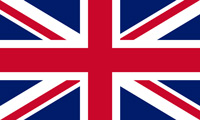 The United Kingdom of Great Britain and Northern Ireland, commonly known as the United Kingdom (UK) or Britain, is a country in Europe, off the north-western coast of the continental mainland. It comprises England, Scotland, Wales and Northern Ireland. The UK became the world's first industrialised country and was the world's foremost power during the 19th and early 20th centuries., and United States
The United Kingdom of Great Britain and Northern Ireland, commonly known as the United Kingdom (UK) or Britain, is a country in Europe, off the north-western coast of the continental mainland. It comprises England, Scotland, Wales and Northern Ireland. The UK became the world's first industrialised country and was the world's foremost power during the 19th and early 20th centuries., and United States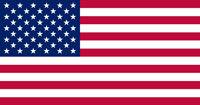 The United States of America (U.S.A. or USA), commonly known as the United States (U.S. or US) or America, is a country in North America. It is the world's third-largest country by both land and total area. The United States shares land borders with Canada to its north and with Mexico to its south. The national capital is Washington, D.C., and the most populous city and financial center is New York City. all decided "in due course Korea shall become free and independent".
The United States of America (U.S.A. or USA), commonly known as the United States (U.S. or US) or America, is a country in North America. It is the world's third-largest country by both land and total area. The United States shares land borders with Canada to its north and with Mexico to its south. The national capital is Washington, D.C., and the most populous city and financial center is New York City. all decided "in due course Korea shall become free and independent".
Soviet-Japanese War (1945)
At the Tehran Conference in November 1943 and the Yalta Conference in February 1945, the Soviet Union Soviet Union, officially the Union of Soviet Socialist Republics (USSR), was a transcontinental country that spanned much of Eurasia from 1922 to 1991. The Soviet Union fall process began with growing unrest in the Union's various constituent national republics developing into an incessant political and legislative conflict between them and the central government. Estonia was the first Soviet republic to declare state sovereignty inside the Union. promised to join its allies in the Pacific War within three months of the victory in Europe. Accordingly, it declared war on Japan on 9 August 1945. By 10 August, the Red Army had begun to occupy the northern part of the Korean peninsula.
Soviet Union, officially the Union of Soviet Socialist Republics (USSR), was a transcontinental country that spanned much of Eurasia from 1922 to 1991. The Soviet Union fall process began with growing unrest in the Union's various constituent national republics developing into an incessant political and legislative conflict between them and the central government. Estonia was the first Soviet republic to declare state sovereignty inside the Union. promised to join its allies in the Pacific War within three months of the victory in Europe. Accordingly, it declared war on Japan on 9 August 1945. By 10 August, the Red Army had begun to occupy the northern part of the Korean peninsula.
On the night of 10 August in Washington, American Colonels Dean Rusk and Charles H. Bonesteel III were tasked with dividing the Korean Peninsula into Soviet and U.S. occupation zones and proposed the 38th parallel. This was incorporated into America's General Order No. 1 which responded to the Japanese surrender on 15 August. Explaining the choice of the 38th parallel, Rusk observed, "even though it was further north than could be realistically reached by U.S. forces, in the event of Soviet disagreement...we felt it important to include the capital of Korea in the area of responsibility of American troops". He noted that he was "faced with the scarcity of US forces immediately available, and time and space factors, which would make it difficult to reach very far north, before Soviet troops could enter the area". As Rusk's comments indicate, the Americans doubted whether the Soviet government would agree to this. Stalin, however, maintained his wartime policy of co-operation, and on 16 August the Red Army halted at the 38th parallel for three weeks to await the arrival of U.S. forces in the south.
Korea Divided (1945–1949)
On 8 September 1945, U.S. Lt. Gen. John R. Hodge arrived in Incheon to accept the Japanese surrender south of the 38th parallel. Appointed as military governor, General Hodge directly controlled South Korea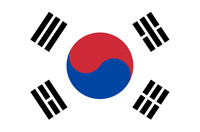 South Korea officially the Republic of Korea (ROK), is a country in East Asia, constituting the southern part of the Korean Peninsula and sharing a land border with North Korea. Since the 21st century, South Korea has been renowned for its globally influential pop culture, particularly in music (K-pop), TV dramas (K-dramas) and cinema, a phenomenon referred to as the Korean wave. as head of the United States Army Military Government in Korea (USAMGIK 1945–48). He attempted to establish control by restoring Japanese colonial administrators to power, but in the face of Korean protests he quickly reversed this decision. The USAMGIK refused to recognize the provisional government of the short-lived People's Republic of Korea (PRK) due to its suspected Communist sympathies.
South Korea officially the Republic of Korea (ROK), is a country in East Asia, constituting the southern part of the Korean Peninsula and sharing a land border with North Korea. Since the 21st century, South Korea has been renowned for its globally influential pop culture, particularly in music (K-pop), TV dramas (K-dramas) and cinema, a phenomenon referred to as the Korean wave. as head of the United States Army Military Government in Korea (USAMGIK 1945–48). He attempted to establish control by restoring Japanese colonial administrators to power, but in the face of Korean protests he quickly reversed this decision. The USAMGIK refused to recognize the provisional government of the short-lived People's Republic of Korea (PRK) due to its suspected Communist sympathies.
In December 1945, Korea was administered by a U.S.-Soviet Union Joint Commission, as agreed at the Moscow Conference, with the aim of granting independence after a five-year trusteeship. The idea was not popular among Koreans and riots broke out. To contain them, the USAMGIK banned strikes on 8 December 1945 and outlawed the PRK Revolutionary Government and the PRK People's Committees on 12 December 1945.
The right-wing Representative Democratic Council, led by Syngman Rhee, who had arrived with the U.S. military, opposed the trusteeship, arguing that Korea had already suffered from foreign occupation far too long. General Hodge began to distance himself from the proposal, even though it had originated with his government.
On 23 September 1946, an 8,000-strong railroad worker strike began in Pusan. Civil disorder spread throughout the country in what became known as the Autumn uprising. On 1 October 1946, Korean police killed three students in the Daegu Uprising; protesters counter-attacked, killing 38 policemen. On 3 October, some 10,000 people attacked the Yeongcheon police station, killing three policemen and injuring some 40 more; elsewhere, some 20 landlords and pro-Japanese South Korean officials were killed. The USAMGIK declared martial law.
Citing the inability of the Joint Commission to make progress, the U.S. government decided to hold an election under United Nations (UN)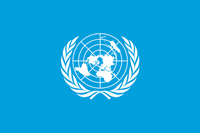 United Nations (UN) is an intergovernmental organization whose stated purposes are to maintain international peace and security, develop friendly relations among nations, achieve international cooperation, and be a centre for harmonizing the actions of nations. The UN was established after World War II with the aim of preventing future world wars, succeeding the League of Nations, which was characterized as ineffective. auspices with the aim of creating an independent Korea. The Soviet authorities and the Korean Communists refused to co-operate on the grounds it would not be fair, and many South Korean politicians boycotted it. A general election was held in the South on 10 May 1948. It was marred by political violence and sabotage resulting in 600 deaths. North Korea
United Nations (UN) is an intergovernmental organization whose stated purposes are to maintain international peace and security, develop friendly relations among nations, achieve international cooperation, and be a centre for harmonizing the actions of nations. The UN was established after World War II with the aim of preventing future world wars, succeeding the League of Nations, which was characterized as ineffective. auspices with the aim of creating an independent Korea. The Soviet authorities and the Korean Communists refused to co-operate on the grounds it would not be fair, and many South Korean politicians boycotted it. A general election was held in the South on 10 May 1948. It was marred by political violence and sabotage resulting in 600 deaths. North Korea North Korea, officially the Democratic People's Republic of Korea (DPRK) is a country in East Asia, in the northern part of the Korean Peninsula. The capital and largest city is Pyongyang. The Korean Demilitarized Zone marks the boundary between North Korea and South Korea. The legitimacy of this border is not accepted by either side, as both states claim to be the legitimate government of the entire peninsula. held parliamentary elections three months later on 25 August.
North Korea, officially the Democratic People's Republic of Korea (DPRK) is a country in East Asia, in the northern part of the Korean Peninsula. The capital and largest city is Pyongyang. The Korean Demilitarized Zone marks the boundary between North Korea and South Korea. The legitimacy of this border is not accepted by either side, as both states claim to be the legitimate government of the entire peninsula. held parliamentary elections three months later on 25 August.
The resultant South Korean government promulgated a national political constitution on 17 July 1948, and elected Syngman Rhee as President on 20 July 1948. The Republic of Korea (South Korea) was established on 15 August 1948. In the Russian Korean Zone of Occupation, the Soviet Union established a communist government led by Kim Il-sung. President Rhee's régime excluded communists and leftists from southern politics. Disenfranchised, they headed for the hills, to prepare for guerrilla war against the US-sponsored ROK government.
Meanwhile, on 3 April 1948, what began as a demonstration commemorating Korean resistance to Japanese rule ended with the Jeju uprising where between 14,000 and 60,000 people died. South Korean Army soldiers carried out large-scale atrocities during its suppression of the uprising. In October 1948, some South Korean soldiers mutinied against the clampdown in the Yeosu-Suncheon Rebellion.
The Soviet Union withdrew as agreed from Korea in 1948, and U.S. troops withdrew in 1949. On 24 December 1949, South Korean forces killed 86 to 88 people in the Mungyeong massacre and blamed the crime on marauding communist bands. By early 1950, Syngman Rhee had about 30,000 alleged communists in jails and about 300,000 suspected sympathizers enrolled in the Bodo League re-education movement.
Chinese Civil War (1945–1949)
With the end of the war with Japan, the Chinese Civil War resumed between the Chinese Communists and the Chinese Nationalists. While the Communists were struggling for supremacy in Manchuria, they were supported by the North Korean government with matériel and manpower. According to Chinese sources, the North Koreans donated 2,000 railway cars worth of matériel while thousands of Koreans served in the Chinese People's Liberation Army (PLA) during the war. North Korea also provided the Chinese Communists in Manchuria with a safe refuge for non-combatants and communications with the rest of China.
The North Korean contributions to the Chinese Communist victory were not forgotten after the creation of the People's Republic of China in 1949. As a token of gratitude, between 50,000 and 70,000 Korean veterans that served in the PLA were sent back along with their weapons, and they later played a significant role in the initial invasion of South Korea. China promised to support the North Koreans in the event of a war against South Korea. The Chinese support created a deep division between the Korean Communists, and Kim Il-sung's authority within the Communist party was challenged by the Chinese faction led by Pak Il-yu, who was later purged by Kim.
After the formation of the People's Republic of China in 1949, the Chinese government named the Western nations, led by the United States, as the biggest threat to its national security. Basing this judgment on China's century of humiliation beginning in the early 19th century, American support for the Nationalists during the Chinese Civil War, and the ideological struggles between revolutionaries and reactionaries, the Chinese leadership believed that China would become a critical battleground in the United States' crusade against Communism. As a countermeasure and to elevate China's standing among the worldwide Communist movements, the Chinese leadership adopted a foreign policy that actively promoted Communist revolutions throughout territories on China's periphery.
HISTORY
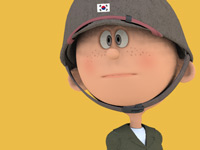
RESOURCES
This article uses material from the Wikipedia article "Korean War", which is released under the Creative Commons Attribution-Share-Alike License 3.0.
© Stories Preschool. All Rights Reserved.
